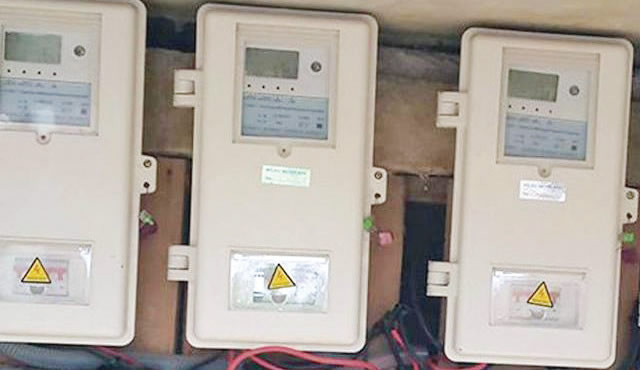Exposed! Benin-based Pastor Solomon Accused of Sexually Abusing Children
Benin-based Pastor Solomon Folorunsho, who said he is on a
self-proclaimed mission to help humanity, creating the International
Christian Centre for Missions (ICCM), is facing accusations of
physically and sexually abusing children seeking refuge in his church’s
camp.
The camp he runs in the ancient city claims to provide accommodation, medical care and education for 4,000 children, “most of them orphans”, as well as 500 widows and missionaries, using funding from local institutions, NGOs and churches abroad.
But witnesses according to an AFP report — children, their relatives, former missionaries and social workers — paint a far darker picture of the pastor and the treatment of those in his care.
“At first he’s very subtle, quiet — like somebody who wouldn’t hurt a fly,” one former church worker said of the charismatic preacher. I loved him, I loved his charisma.”
But during months of interviews, witnesses detailed how those living at his 30-hectare (75-acre) facility frequently go hungry and thirsty and endure atrocious hygiene conditions.
All accused the pastor of physical abuse, while some accused him of sexual harassment.
Pastor Solomon, aged in his 50s, admits having problems with food and sanitary conditions in the camp but denies any mistreatment.
“There is no bad treatment here. We don’t do abuse,” he told AFP.
“Feeding them is a challenge… but we don’t have anything to hide. We are helping humanity.”
Concerns about the camp have a long history. Three years ago, the UN children’s agency UNICEF sent an assessment team to the site, who filed a report with damning conclusions.
“Pastor Solomon runs this camp as if it is his ‘kingdom’. He controls the movement and actions of every person in the camp through a group of ministers and specially selected children,” the team wrote in the confidential report, seen by AFP.
The UNICEF investigators said what they saw, coupled with interviews with children, caregivers and NGO workers, prompted “strong concerns regarding the possibility that Pastor Solomon may be engaged in sexual activities, or at a minimum, displaying grooming behaviors with girls in the camp”.
Witnesses also told AFP that around a dozen young girls work for the pastor as his personal servants and receive preferential treatment.
“A girl who refused to work for him was punished and starved. When he beat you, he wouldn’t stop until you bled seriously,” said Rahila, a 16-year-old girl who left the camp several months ago.
“He had names that he called different girls… He would comment on the size of my butt, and he would say our chests looked like pineapples or stuff like that,” she said.
All the witnesses’ names have been changed to protect their identities.
Other children and adults said that those who upset the preacher were treated brutally.
“No one leaves Pastor Solomon without a scar — whether it is psychological or physical,” a former follower told AFP after hesitating at first to talk about his ordeal.
Convincing people to talk about their experiences with Pastor Solomon is a painstaking task. Some have refused to speak out for 20 years.
“Most of the girls were coming from poor homes. They would sleep with him and in exchange he would pay for their school fees,” said a former female follower who was at the church in the late 1990s.
She said her going to the authorities about the abuse she experienced and witnessed was out of the question in a country where powerful men are rarely brought to justice.
She was also scared of juju, the traditional black magic widely feared by people in the region.
“I was scared to talk. He uses juju, people told me I would die.”
Source
The camp he runs in the ancient city claims to provide accommodation, medical care and education for 4,000 children, “most of them orphans”, as well as 500 widows and missionaries, using funding from local institutions, NGOs and churches abroad.
But witnesses according to an AFP report — children, their relatives, former missionaries and social workers — paint a far darker picture of the pastor and the treatment of those in his care.
“At first he’s very subtle, quiet — like somebody who wouldn’t hurt a fly,” one former church worker said of the charismatic preacher. I loved him, I loved his charisma.”
But during months of interviews, witnesses detailed how those living at his 30-hectare (75-acre) facility frequently go hungry and thirsty and endure atrocious hygiene conditions.
All accused the pastor of physical abuse, while some accused him of sexual harassment.
Pastor Solomon, aged in his 50s, admits having problems with food and sanitary conditions in the camp but denies any mistreatment.
“There is no bad treatment here. We don’t do abuse,” he told AFP.
“Feeding them is a challenge… but we don’t have anything to hide. We are helping humanity.”
Concerns about the camp have a long history. Three years ago, the UN children’s agency UNICEF sent an assessment team to the site, who filed a report with damning conclusions.
“Pastor Solomon runs this camp as if it is his ‘kingdom’. He controls the movement and actions of every person in the camp through a group of ministers and specially selected children,” the team wrote in the confidential report, seen by AFP.
The UNICEF investigators said what they saw, coupled with interviews with children, caregivers and NGO workers, prompted “strong concerns regarding the possibility that Pastor Solomon may be engaged in sexual activities, or at a minimum, displaying grooming behaviors with girls in the camp”.
Witnesses also told AFP that around a dozen young girls work for the pastor as his personal servants and receive preferential treatment.
“A girl who refused to work for him was punished and starved. When he beat you, he wouldn’t stop until you bled seriously,” said Rahila, a 16-year-old girl who left the camp several months ago.
“He had names that he called different girls… He would comment on the size of my butt, and he would say our chests looked like pineapples or stuff like that,” she said.
All the witnesses’ names have been changed to protect their identities.
Other children and adults said that those who upset the preacher were treated brutally.
“No one leaves Pastor Solomon without a scar — whether it is psychological or physical,” a former follower told AFP after hesitating at first to talk about his ordeal.
Convincing people to talk about their experiences with Pastor Solomon is a painstaking task. Some have refused to speak out for 20 years.
“Most of the girls were coming from poor homes. They would sleep with him and in exchange he would pay for their school fees,” said a former female follower who was at the church in the late 1990s.
She said her going to the authorities about the abuse she experienced and witnessed was out of the question in a country where powerful men are rarely brought to justice.
She was also scared of juju, the traditional black magic widely feared by people in the region.
“I was scared to talk. He uses juju, people told me I would die.”
Source
Posted in News About Men of God
Related






















No comments